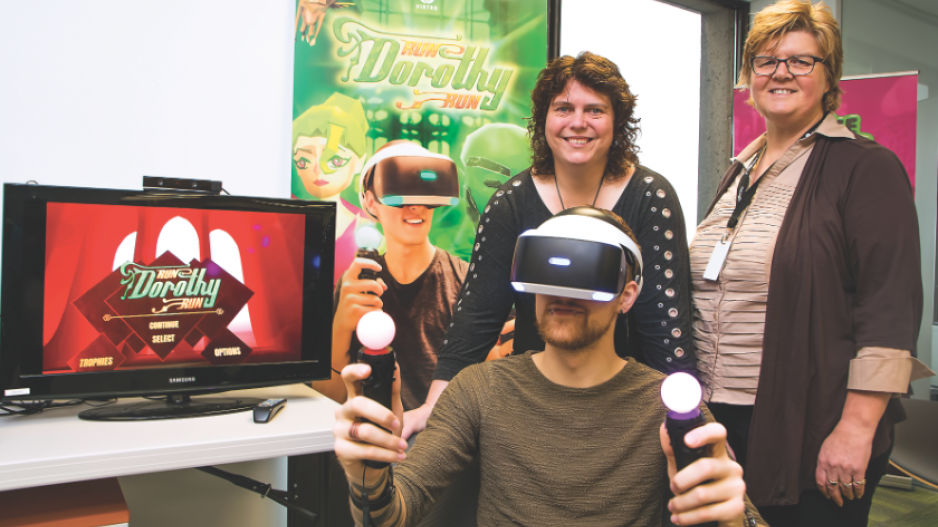Uncertain about the prospects of gay marriage in Australia a year ago, Jordan and Lee Brighton were determined to find a new country in which to settle with their two children and launch their third startup.
“Canada is a beautiful bubble, and we love it,” said Jordan, CEO and co-founder of Vancouver-based virtual reality firm Virtro Entertainment Inc.
After doing some reconnaissance in Vancouver and Toronto, the couple applied to get into Canada in December 2016 through the Start-up Visa pilot.
The program targets immigrant entrepreneurs with the promise of permanent residency if they get support from a venture capital group, an angel investor group or a business incubator to launch a startup in Canada.
The Start-up Visa pilot was introduced in April 2013.
It delivered 117 visas to applicants over four years before the federal government announced in July it would make the program permanent next year. As of September 30, another 21 applicants have been approved.
There’s no precise data on the number of immigrants who have founded tech startups in Canada but a 2016 study from the National Foundation for American Policy determined immigrants founded 44 out of 87 U.S. startups valued at US$1 billion or more.
Next month will mark the launch of Virtro’s first product: Run Dorothy Run, a VR game following players as they zip through fantasy worlds inspired by The Wizard of Oz.
The quick turnaround comes even after the Brightons had to sit out of business operations as they awaited permanent residency while on visitor visas.
“The business employed people, but I wasn’t an active participant in the first few months,” Jordan Brighton said. “It’s tricky doing an immigration process and a business process at the same time because they’re a little at odds with each other.”
Virtro employs five full-time and five part-time workers, and Jordan expects to ramp up hiring in January.
However, critics have been quick to pounce on the relatively small number of entrepreneurs to enter Canada through the Start-up Visa pilot.
Immigration lawyer Richard Kurland told BIV in July the pilot only began drawing numbers in 2016, and it’s still unclear whether it’s been effective.
Meanwhile, the federal government is employing other programs to bring in foreign workers to help spur growth in the tech industry.
The decision to make the Start-up Visa program permanent came a month after the rollout of Ottawa’s Global Skills Strategy.
The strategy is promising to process 80% of work permit applications for specialized tech workers within 10 business days, while employers pay the government $1,000 per position.
Immigration, Refugees and Citizenship Canada has processed more than 2,000 applications since the program’s June launch, according to government spokeswoman Faith St. John.
But immigration lawyer Bruce Harwood of Boughton Law Corp. said that the program still seems cumbersome, and he’s heard anecdotally that the two-week processing time is closer to four weeks. Instead, he’s been focused on using provisions in the North American Free Trade Agreement and the recently deployed Comprehensive Economic and Trade Agreement with the European Union to process foreign workers swiftly.
Meanwhile, Canada Drives co-CEO Cody Green said growth at his financial technology firm specializing in automobile financing has been stymied by difficulties recruiting tech workers in Canada. The company has hired about 100 workers in the past year, and Green plans to hire another 100 in the next year.
He said his company had been “exhaustively looking” for Canadian software engineers, designers, database analysts and computer programmers to fill specialized “niche” positions.
Following the June rollout of the Global Skills Strategy, Green said the company was able to hire “several” workers from India and Brazil.
“These were positions we had open for a long time before, so for us it was definitely removing a bottleneck.… Once we were able to fill these positions, we could hire the support positions around [them] and get back to growing the company,” he said.
“The quick math that we found is that for every foreign worker we were able to bring in, it allowed us to bring in another five to 10 Canadians.”




